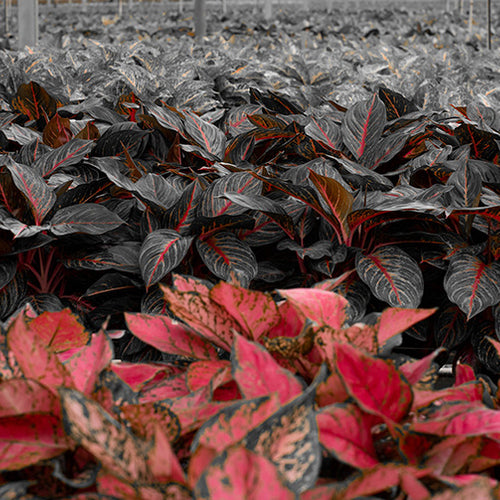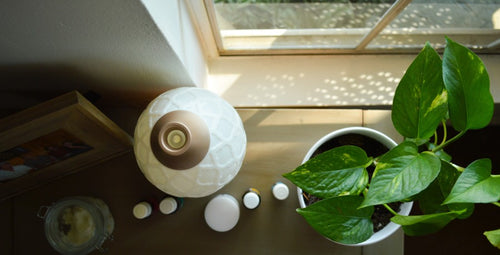I’ve always known that the simple act of gardening helps me feel better. Nothing improves my mood better after a tough day at work, for example, than walking around my yard. It might be the fresh air. Or the feel of the evening sun on my skin. Or maybe that I’m surrounded by plants I love.
Gardening as Stress Relief
Scientific research shows this effect isn’t limited to me, though. One study in 2010 took at a look at a group of people who were given a stressful task. Immediately after, half the folks went out and spent time gardening for 30 minutes. The other half sat down to read. The group who went out to garden exhibited lower stress levels than the readers. Not surprisingly, the less-stressed gardening group also experienced being in a much better mood.
The findings from a group of researchers in Norway point to gardening potentially being able to help treat, or at least stave off, depression. And they found this after only three months of digging in the dirt.
Dutch research published in the journal Science of the Total Environment revealed gardening helps in other ways. It can create social bonds between people. Besides stress reduction our stress, it can help with feelings of isolation or loneliness. Last year the Royal College of Physicians noted that health professionals should look at having their patients spend time in gardens to help with a variety of treatments, both physical and mental.

Gardening as Exercise
It shouldn’t be any surprise that gardening is a great way to get in your daily dose of physical activity. Even mundane tasks like weeding are a surprisingly effective way to burn calories (some 300 calories per hour).
Planting and other activities help us build muscle tone, strength, and endurance. The various range of movements can also help keep us more limber and flexible. Gardening is an excellent low-impact form of exercise! (And one that I find much easier sticking to than going to the gym after work.)
Gardening to Live Longer
These immediate benefits appear to have a power cumulative effect. Australian research reveals that gardening can potentially reduce our risk of dementia by 36 percent. And a 2016 study in South Korea demonstrated that elderly women who engaged in gardening activities twice a week for 50 minutes maintained better control of their weight, lung capacity, hand dexterity, and cognitive ability.
The act of nurturing plants can make us feel better especially as we age. Various pieces of research indicate gardening can help with our self-esteem. Successfully cultivating beautiful plants can improve our confidence and give us a sense of purpose.
Improving our quality of life is a compelling reason to beautify your yard and try growing fresh fruits and vegetables. But it also yields other benefits, including helping save money on our energy bills and improving your property’s value.
What’s not to love about that?
Gardening as Stress Relief
Scientific research shows this effect isn’t limited to me, though. One study in 2010 took at a look at a group of people who were given a stressful task. Immediately after, half the folks went out and spent time gardening for 30 minutes. The other half sat down to read. The group who went out to garden exhibited lower stress levels than the readers. Not surprisingly, the less-stressed gardening group also experienced being in a much better mood.
The findings from a group of researchers in Norway point to gardening potentially being able to help treat, or at least stave off, depression. And they found this after only three months of digging in the dirt.
Dutch research published in the journal Science of the Total Environment revealed gardening helps in other ways. It can create social bonds between people. Besides stress reduction our stress, it can help with feelings of isolation or loneliness. Last year the Royal College of Physicians noted that health professionals should look at having their patients spend time in gardens to help with a variety of treatments, both physical and mental.

Gardening as Exercise
It shouldn’t be any surprise that gardening is a great way to get in your daily dose of physical activity. Even mundane tasks like weeding are a surprisingly effective way to burn calories (some 300 calories per hour).
Planting and other activities help us build muscle tone, strength, and endurance. The various range of movements can also help keep us more limber and flexible. Gardening is an excellent low-impact form of exercise! (And one that I find much easier sticking to than going to the gym after work.)
Gardening to Live Longer
These immediate benefits appear to have a power cumulative effect. Australian research reveals that gardening can potentially reduce our risk of dementia by 36 percent. And a 2016 study in South Korea demonstrated that elderly women who engaged in gardening activities twice a week for 50 minutes maintained better control of their weight, lung capacity, hand dexterity, and cognitive ability.
The act of nurturing plants can make us feel better especially as we age. Various pieces of research indicate gardening can help with our self-esteem. Successfully cultivating beautiful plants can improve our confidence and give us a sense of purpose.
Improving our quality of life is a compelling reason to beautify your yard and try growing fresh fruits and vegetables. But it also yields other benefits, including helping save money on our energy bills and improving your property’s value.
What’s not to love about that?
Written by Justin Hancock

















